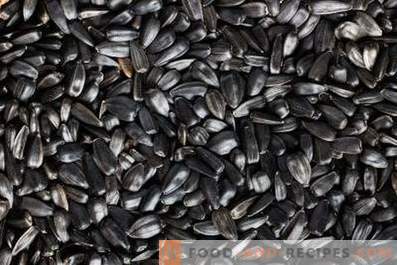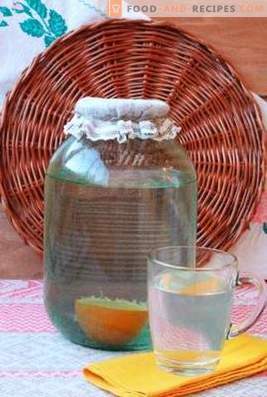
Pomegranate is a rarity in northern latitudes. And in a subtropical climate - in the South Caucasus, Central Asia, Azerbaijan, Turkmenistan, Iran, Afghanistan - this beautiful tree can be found even along river banks, not to mention large plantations and rich harvests of this tasty and healthy fruit.
Useful properties of pomegranate
- Pomegranate fruits contain sugar, tannins, vitamins B, PP, A, C, tannin, phytoncides.
- They are rich in potassium, calcium, phosphorus, iron, magnesium, cobalt.
- Pomegranate peel is used for dysentery.
- His peel is a good anthelmintic. Also, to expel worms use its root and juice.
- Pomegranate juice reduces stomach pain, improves appetite, has a diuretic, choleretic, anti-inflammatory and antiseptic effect.
- Pomegranate fruits are used in the diet, as well as for the preparation of beverages, sauces, salads and seasonings.
Pomegranate has a good keeping ability, so the fruit is often sent for storage so that you can enjoy its taste in winter. But so that during storage it does not deteriorate, you need to know a few rules by which ripe and high-quality fruits are chosen.
How to choose the right grenades
- First, pay attention to its appearance. The peel of a ripe pomegranate has a red or pinkish color. It should not have any dents and suspicious spots, the presence of which can only say that the fruit has begun to deteriorate.
- A ripe pomegranate peel is dry, slightly lignified and thin. She seems to be wrapping grains that are well felt under her.
- Pomegranate should be free from damage and cracks.
- If you press on the peel, you can hear the light crunch of ripe seeds.
- A ripe pomegranate must be heavy. If the fruit is light, then, most likely, it has already begun to dry from the inside.
- In a ripe fruit, the crown of the head is framed with dry sepals. In no case should they be wet and rotten. If the stem has been preserved, then it must also be dry, not green.
Basic rules for storing pomegranate
- Only ripe and strong pomegranates without damage and with a dried “crown” should be stored.
- Grenades are stored at a temperature of + 1-10 °, so a cellar, a basement, a cold room, and a refrigerator are suitable for storage.
- The storage should have moderate air humidity, since at low humidity the grenades dry up, and at high humidity they rot.
How to store grenades in storage
Method 1
Each fruit is wrapped in thin paper and folded into low boxes covered with material that absorbs moisture well. Cover them with an opaque cloth.
In this form, grenades are stored for about two months.
Method 2
For storage of pomegranates use clay talker, which is prepared from clay and water, mixing them to the consistency of liquid sour cream. Each fruit is dipped with the tip (“crown”) into the solution and allowed to dry. Then the grenades processed in this way are laid out on racks and covered with fabric on top. In a dry room, they can be stored for up to five months. By the way, this method of processing pomegranates before putting it into storage will allow slightly unripe fruits to reach the standard.
How to store pomegranates in the refrigerator
If there is no high humidity in the refrigerator, then pomegranates are stored in the vegetable compartment. So that they do not start to deteriorate from contact with each other, they are recommended to be wrapped in clean paper and only then put in boxes for vegetables and fruits.
In the refrigerator, grenades can be stored for no more than 2 months, and then they begin to deteriorate gradually.
Hostess Tips
In order not to lose the whole crop, grenades need to be periodically picked.
The fruits that began to spoil are immediately separated from the total mass.
If they are not suitable for food, they are ruthlessly thrown away.
Slightly tainted grenades need to be cleaned immediately. If the seeds are not injured, they are poured into a plastic bag or plastic container, well closed and put into the freezer. Pomegranate grains are stored there for up to six months.











































